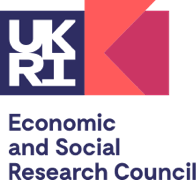Sofia completed a 3-month research visit at CTUR:
During her research visit at the Centre for Time Use Research, Sofia worked on merging and classifying the expenditures in the UK Living Cost and Food Survey from 2001 to 2016. The Living Cost and Food Survey collects data on expenditure patterns and household characteristics across the UK. In accordance with Gary Becker’s (1965) argument that human needs are satisfied through a combination of (often purchased) goods and unpaid work time and consumption time, Sofia classified all expenditures by whether they are intermediate material input (such as flour) or capital input (such as an oven) to a household production activity (such as meal preparation) or a final service (such as a restaurant meal). For each of 12 COICOP (classification of individual consumption by purpose) categories, the resulting dataset shows the expenditures on final services and intermediate inputs over time deflated by COICOP category-specific deflators to 2015 prices. Overall, the share of final services in the household budgets has increased while the capital input share has decreased over the 15 years, especially for the richest households. By further adding a time use perspective from the UK Time Use Survey from 2001 and 2015 to this, a complete representation of the economy that includes unpaid household activities can be achieved.
About Sofia's PhD
Sofia is a PhD student working on the Getting the Data Right project at Aalborg University in Denmark. The project develops a globally complete input-output database for climate footprint estimation. Sofia works on household behaviour and creates household input-output tables showing how time, market, government, and household-produced products are used as inputs to household activities. The tables will be coupled with a database of the market economy and environmentally extended such that the climate footprint of each household activity can be estimated. The data structure that Sofia is developing further shows the contribution of household production activities to a complete national product that includes household production activities. Accounting in time and monetary units enables the calculation of the climate footprint per hour or pound spent and provides the basis for the estimation of rebound effects i.e., the resulting effect of releasing 1 hour or 1 pound from a specific activity on the climate footprint knowing that the hour or pound is redistributed to another activity.


